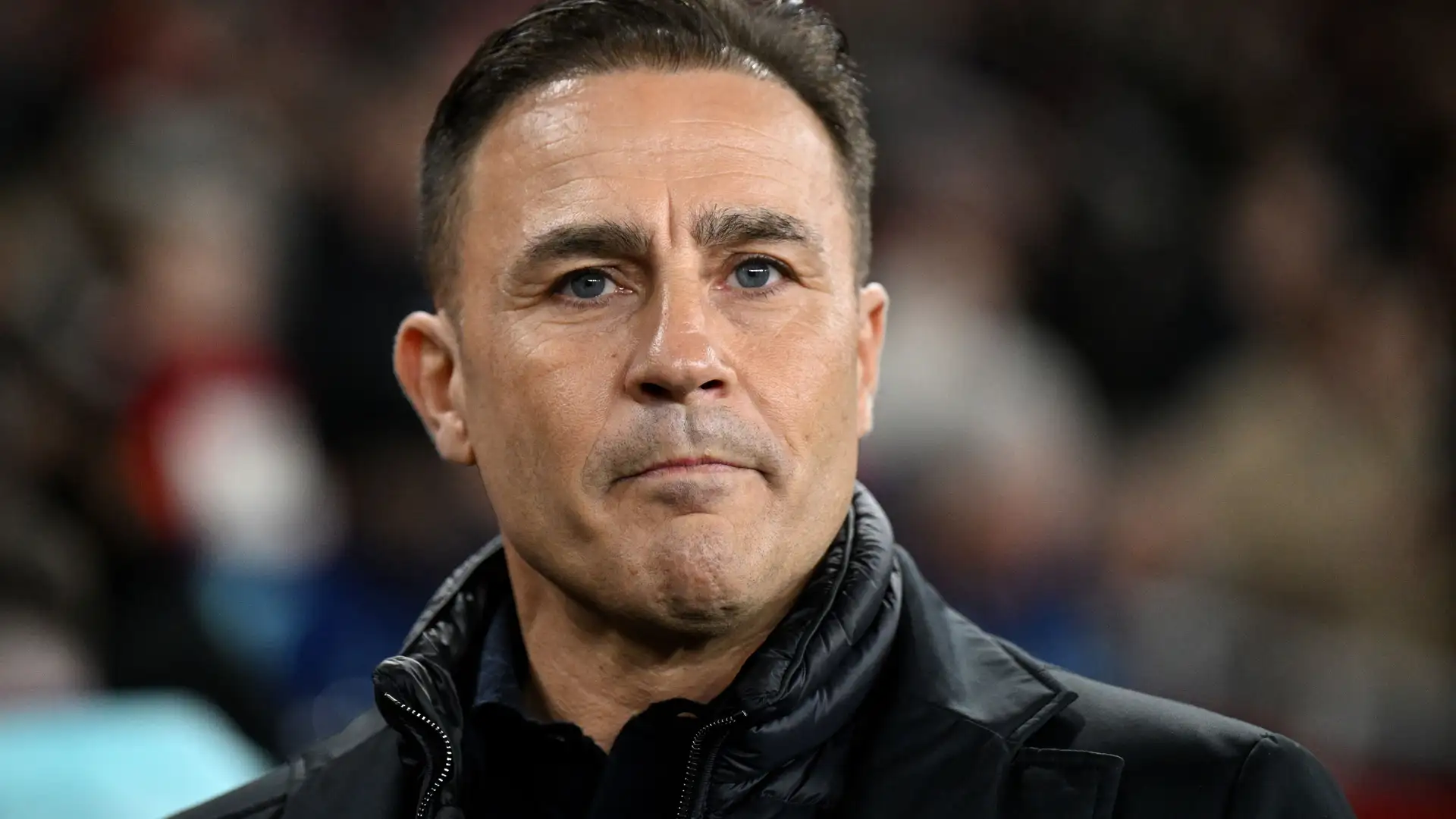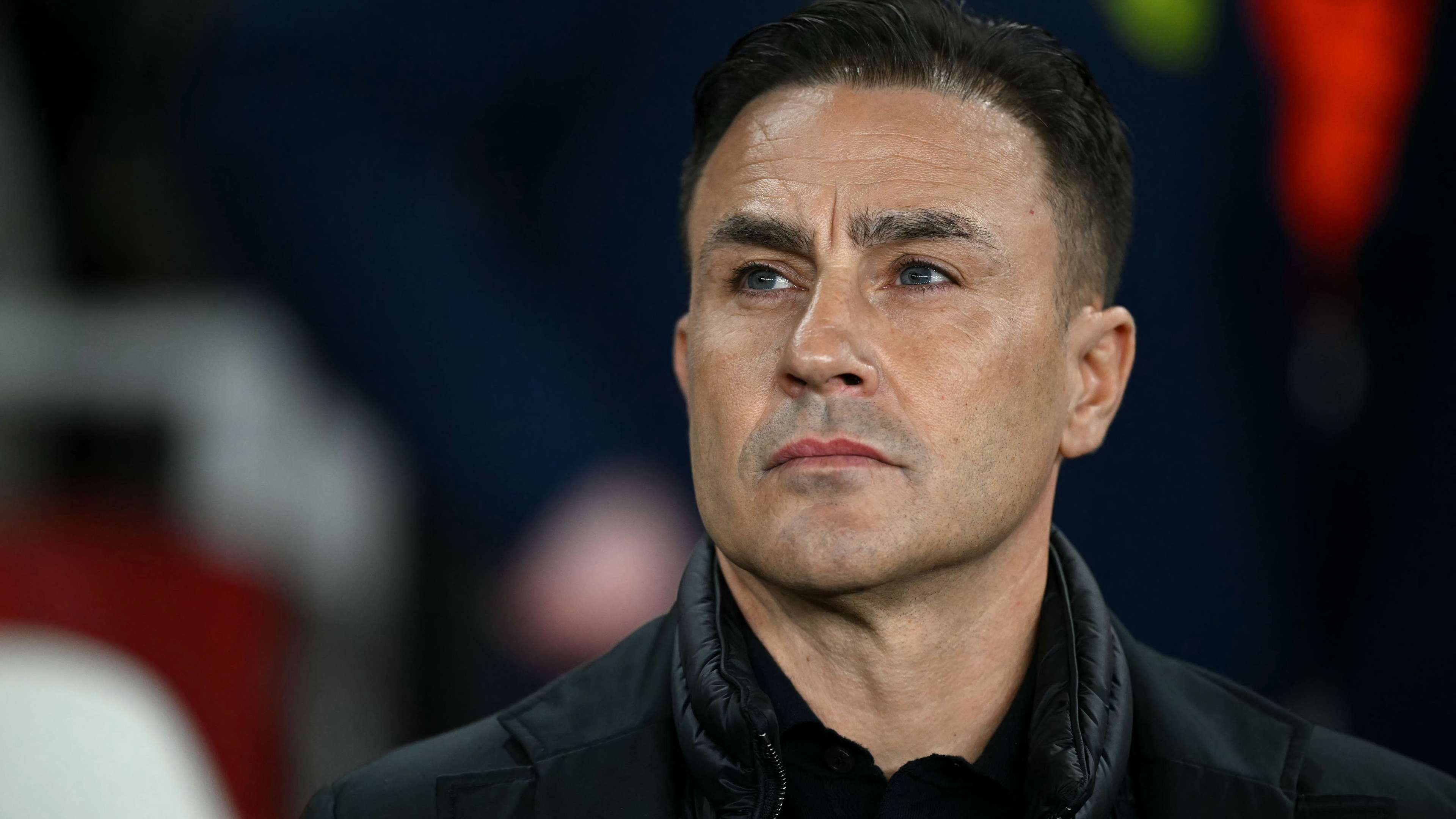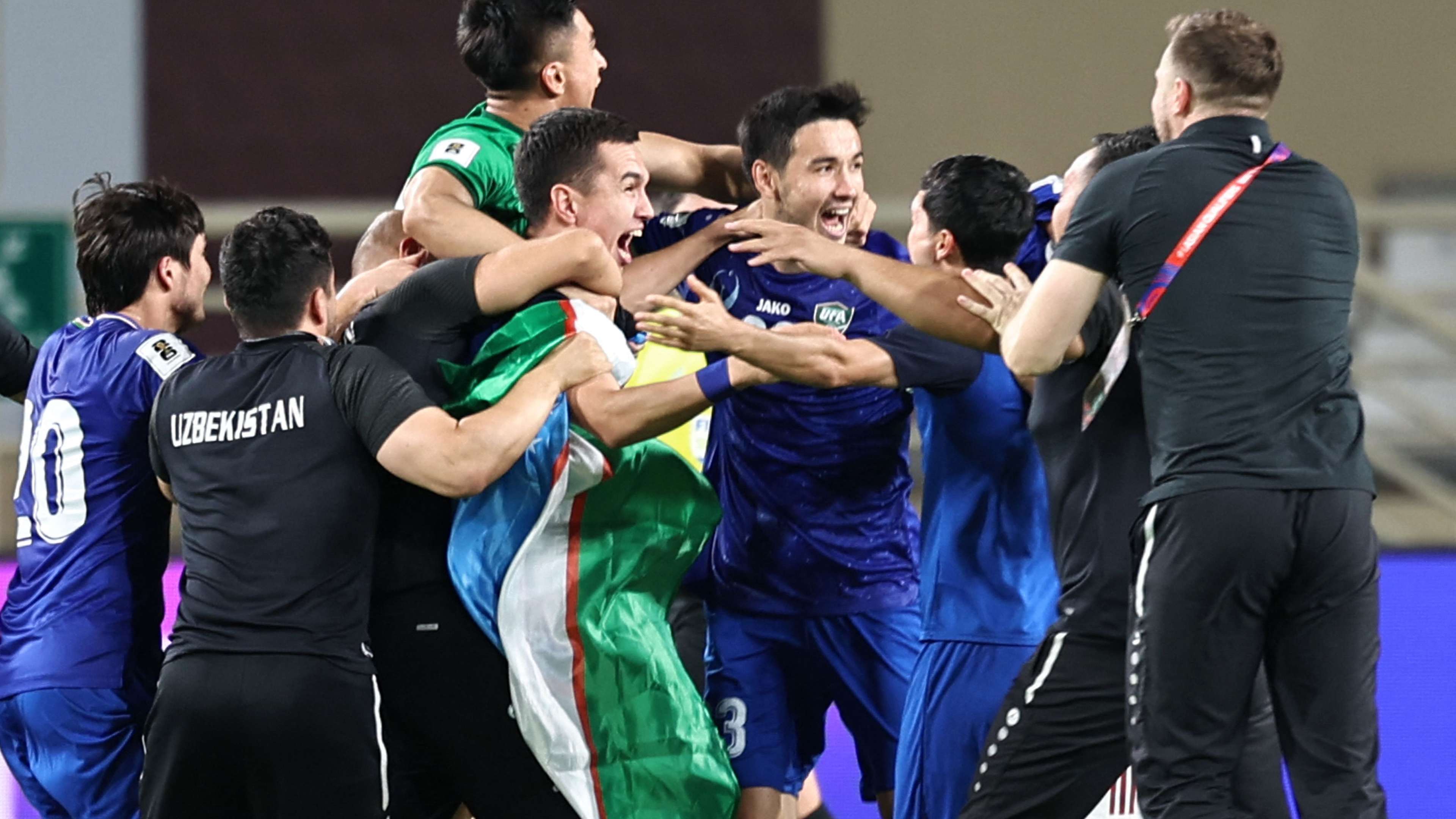
Fabio Cannavaro Appointed Uzbekistan Manager as Minnows Prepare for First-Ever World Cup Campaign
World Cup-Winning Captain and Ballon d’Or Icon Takes Charge to Lead Asian Underdogs into Football’s Biggest Stage
When Fabio Cannavaro lifted the World Cup trophy in Berlin in 2006, few could have imagined that nearly two decades later, the Italian icon would be preparing to lead Uzbekistan — yes, Uzbekistan — into their first-ever World Cup campaign. Yet here we are. Football, as ever, finds its poetry in the unexpected.
The news broke on Monday morning: the Uzbekistan Football Association has confirmed Cannavaro’s appointment as head coach ahead of the 2026 FIFA World Cup. The announcement was met with a mix of excitement and disbelief — a global superstar and former Ballon d’Or winner taking charge of a nation making its debut on football’s grandest stage.
For Uzbekistan, this is more than just a managerial appointment. It’s a statement — a declaration that the country, long regarded as Asia’s sleeping giant, intends not just to participate but to compete.
A New Era for Uzbekistan
For decades, Uzbekistan have flirted with promise, producing technically gifted players and dominating at youth levels, yet somehow falling just short when it mattered most. But that changed dramatically during the 2026 World Cup qualifiers.
Under Timur Kapadze, who took over midway through the campaign after Srecko Katanec’s resignation due to health reasons, Uzbekistan delivered a near-perfect qualification run — losing just once in 15 matches and collecting 21 points from 10 games in the decisive round. Their qualification wasn’t a fluke or a product of the tournament’s expansion to 48 teams; they earned it on merit, with composure, discipline, and flair.
Now, they’ve turned to Cannavaro — a man whose footballing DNA is steeped in elite experience — to lead them into uncharted territory.
“We wanted a coach who understands what it means to win at the very highest level,” said UFA President Abdusalom Azizov. “Fabio represents not just experience, but mentality. That’s what our players need.”
For a nation still defining its footballing identity, Cannavaro’s arrival feels like the beginning of a new chapter — one defined by ambition rather than limitation.

FBL-EUR-C1-ARSENAL-DINAMO ZAGREB
Cannavaro’s Road Back to the Dugout
The appointment comes just months after Cannavaro’s brief spell at Dinamo Zagreb, which ended abruptly in April 2025 after a run of inconsistent results. Yet, rather than tarnish his reputation, the stint reminded the footballing world that the Italian remains restless and hungry for challenges.
At 52, Cannavaro’s managerial journey has been anything but linear. It’s taken him from China to Saudi Arabia, from Serie B to Croatia, and now to Central Asia. Few coaches of his pedigree have embraced such diversity in experience — and fewer still have achieved so much across continents.
The 2006 World Cup-winning captain brings with him not only an elite playing career but also a broad coaching perspective shaped by global football cultures. He’s been a student of the game in its many forms — tactical, physical, and psychological.
“Uzbekistan represents a new challenge,” Cannavaro said at his unveiling. “They’ve already achieved something historic by qualifying. My job is to help them believe they belong among the world’s best.”
The Backroom Team: A Trusted Circle
Joining Cannavaro in Tashkent will be a familiar group of collaborators:
- Eugenio Albarella (Assistant Manager)
- Francesco Troise (Fitness Coach)
- Antonio Chimenti (Goalkeeping Coach)
It’s the same team that has accompanied him across several of his managerial stops, from Guangzhou Evergrande to Dinamo Zagreb. The continuity should help Uzbekistan’s players adapt quickly to his methods — meticulous training, structured positional play, and an emphasis on mental sharpness.
Cannavaro’s first order of business? Assessing the local talent pool and integrating overseas-based players who’ve been catching the eye in Europe and the Middle East. His intention, sources suggest, is to establish a hybrid identity: disciplined defensively (as one would expect from an Italian centre-back) but expressive and brave in possession.
Tracing Fabio Cannavaro’s Managerial Journey
To understand why Cannavaro was chosen, one must appreciate the evolution of his coaching career.
His first taste of management came in 2013 as assistant at Shabab Al Ahli in the UAE. There, he helped guide the club to domestic success, winning the UAE Pro League and League Cup, before taking on his first full managerial role with Tianjin Quanjian in China.
It was in China that his reputation as a coach truly began to form. Under his leadership, Tianjin won the China League One title in 2016, earning promotion to the Chinese Super League. The following year, they finished third in their debut top-flight season, a stunning achievement that earned Cannavaro the Chinese Football Association Coach of the Year award in 2017.
His success caught the eye of Guangzhou Evergrande, the country’s dominant club. Across two spells (2014–2015 and 2017–2021), he won multiple domestic titles, including the Chinese Super League championship in 2019, and guided the team deep into the AFC Champions League. His overall record there — 125 wins in 211 matches — remains one of the best ever by a foreign manager in Asian football.
Shorter stints followed at Al-Nassr, Benevento, Udinese, and Dinamo Zagreb, each offering lessons and challenges in vastly different footballing environments.
In many ways, his career mirrors the modern football map — global, demanding, and unpredictable. Uzbekistan, then, feels like both an unexpected detour and a natural next step for a man unafraid to take the road less travelled.
Why Uzbekistan?

Uzbekistan qualify for the 2026 World Cup
The question on many lips: why would a World Cup-winning Italian legend take charge of a small Central Asian nation?
The answer seems to lie in the project itself. Uzbekistan aren’t just qualifying for their first World Cup; they’re looking to build a sustainable football culture. The UFA has invested heavily in youth academies, infrastructure, and international exposure. The nation’s Under-23 side reached the Asian Cup semi-finals in 2024, and there’s a clear generational shift underway.
Cannavaro’s reputation as a disciplined, detail-oriented coach fits perfectly. He’s not coming to chase headlines; he’s coming to leave a legacy.
“We have talent, but we need structure,” said UFA technical director Ravshan Khaydarov. “Cannavaro understands how to create winning habits.”
A World Cup Debut to Remember
Uzbekistan’s journey to the 2026 World Cup will culminate next June when they step onto the world stage for the very first time. Their qualification alone has sent ripples through Asian football.
Drawn from a population deeply passionate about the sport, the “White Wolves” have long been Asia’s perennial nearly-men — competitive in the AFC Asian Cup, but always falling just short on the world stage. That stigma is gone now.
Cannavaro’s immediate goal will be simple: make Uzbekistan competitive against the world’s elite. But his broader mission is cultural — instilling belief that this team can belong.
The 2026 tournament, co-hosted by the United States, Mexico, and Canada, will see Uzbekistan face opponents from across the globe. Cannavaro’s experience as both a player and manager in diverse footballing settings could prove invaluable in preparing a squad that mixes youthful exuberance with growing international maturity.
The Cannavaro Effect: A Symbol Beyond Football
There’s also the intangible — the psychological impact of a figure like Cannavaro walking into the Uzbekistan dressing room.
Here is a man who has captained Italy to a World Cup title, lifted the Ballon d’Or, and shared dressing rooms with footballing gods like Buffon, Totti, and Pirlo. His presence alone changes perceptions — both inside and outside the country.
He commands respect, and that respect can quickly translate into belief. For players who’ve spent their careers watching him on television, having him as their manager will be surreal — and deeply motivating.
“It’s like having a piece of football history as your coach,” said Uzbek international Eldor Shomurodov. “We grew up watching him lift the World Cup. Now he’s here to help us play in one.”
What Comes Next for Uzbekistan
The months ahead will be crucial. Cannavaro will oversee a series of training camps in Tashkent and Europe, focusing on tactical organization and squad cohesion. Friendlies against top-tier opposition are reportedly in the works, including matches against Turkey, Morocco, and Japan.
His first competitive test, however, will come in the Asian Cup qualifiers leading up to the World Cup. While the focus is understandably on 2026, Cannavaro has made it clear that consistent performance — not just one tournament — will define his tenure.
“We’re not going to America just to take pictures,” he said firmly. “We’re going to compete. To show that Uzbekistan belongs.”
A Bold Step into Football’s Future
As football continues to globalize, Cannavaro’s move underscores a powerful truth — that the sport’s magic lies in its unpredictability. A decade ago, few would have predicted a World Cup-winning Italian taking charge of Uzbekistan. Yet in 2025, it feels entirely fitting.
For Uzbekistan, it’s a gamble — but one with enormous upside. For Cannavaro, it’s a challenge that could redefine his managerial legacy.
One thing’s for certain: when Uzbekistan walk out for their first World Cup match in June 2026, they’ll do so with belief, structure, and the unmistakable calm of a man who’s been there, lifted the trophy, and knows exactly what it takes.
Fabio Cannavaro, the captain who conquered the world, now leads a nation daring to dream of doing the same.
























There are no comments yet. Be the first to comment!